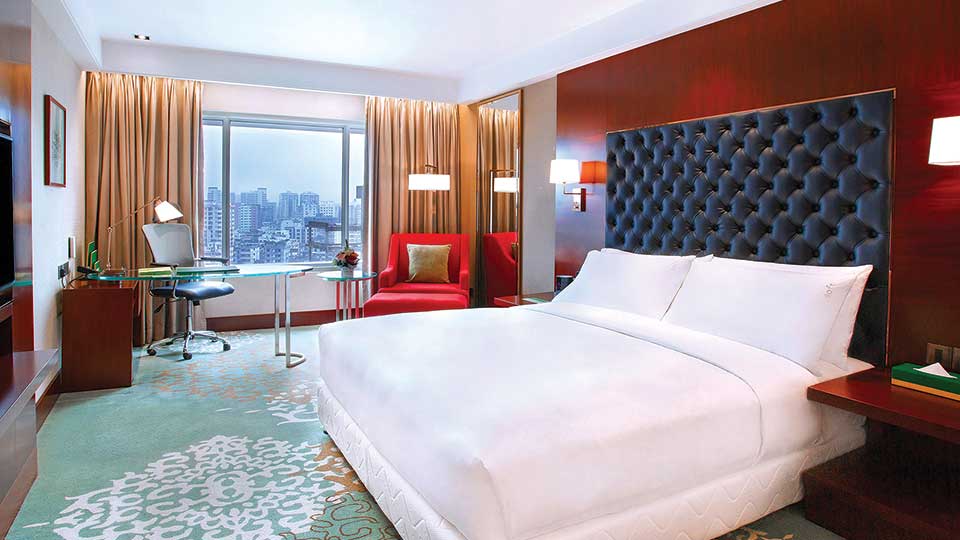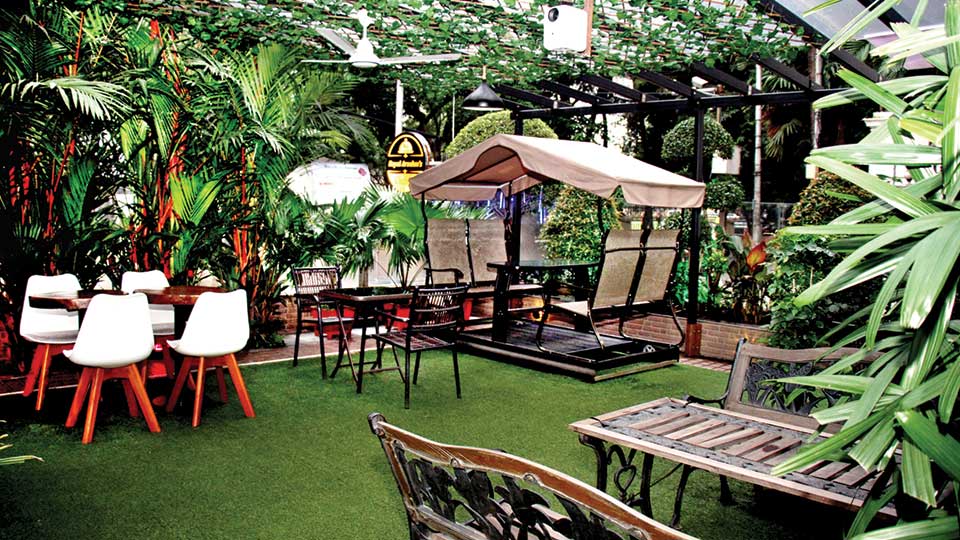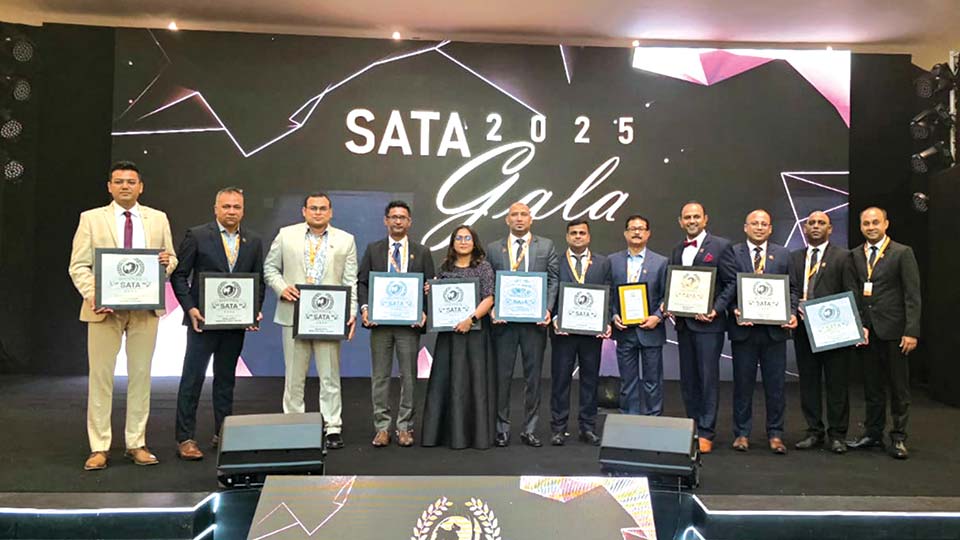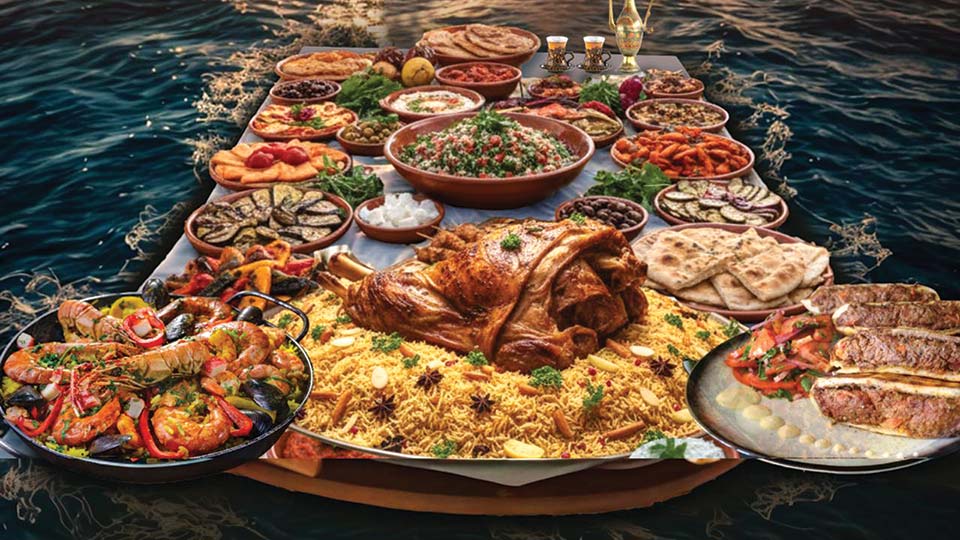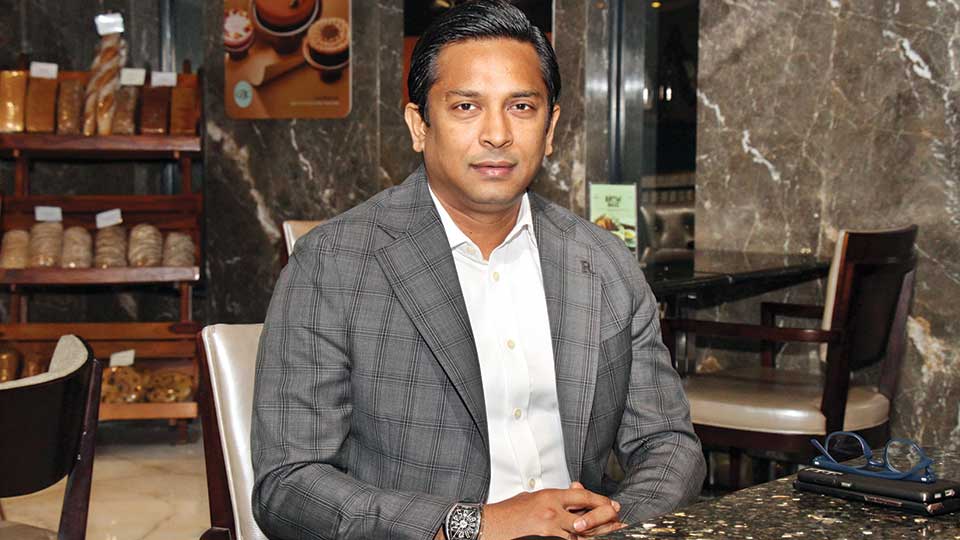
Dhaka : The capital's five-star hospitality sector is facing one of its most difficult periods in recent years, with occupancy rates and corporate travel demand falling well below expectations. Yet amid this slowdown, Renaissance Dhaka Gulshan Hotel stands out for both its resilience and its leadership milestone.
Md Al Amin, recently promoted as the first-ever Bangladeshi General Manager of Marriott International in South Asia, is steering the hotel through turbulent times with cautious optimism and a clear vision for the future.
A challenging market
"Our hospitality business is currently at 55-60 percent of what we expected," Al Amin said while talking to The Bangladesh Mon-itor. "Renaissance Dhaka is doing a bit better than the industry average, but still lower than our expectation. We are at around 60 percent occupancy, whereas the five-star hotel segment in Dhaka is currently at 40-45 percent."
Dhaka's hotel industry depends largely on corporate travelers, a segment hit hard by the country's ongoing political instability. According to Al Amin, inbound travel from India - once a significant contributor to business arrivals - has slowed. Likewise, the number of incoming business travelers connected to the ready-made garments (RMG) sector, development projects, and foreign investments has declined.
"Emergency travel still exists, but the corporate flow is much less," he said. "The hotels that depend on airline crew or permanent segment contracts are doing slightly better, but overall, the market is not favorable."
Political, global headwinds
Al Amin believes the hospitality sector will not see a meaningful rebound until after Bangladesh's next general election. "Till the second quarter of next year, we expect business to remain the same. In the third and fourth quarters, things might improve, but the aftereffects of the election will linger. We think 2027 will be a normal year for the industry."
Global factors are compounding the challenge. "Dollar devaluation, the shifting dynamics of BRICS, and broader geopolitical uncertainty all affect our industry," he explained. "Hospitality is not just about local conditions-it's tied to global economics."
Renaissance's strategy: value, innovation, sustainability
Despite the uncertainty, Al Amin is determined to keep Renaissance Dhaka competitive. "We are mitigating the situation by offering better value propositions. Whether it is room rates or F&B, our pricing is competitive. We want to sustain our clients by giving them the right value without compromising on quality."
As part of Marriott International, the world's largest hospitality company, Renaissance Dhaka has adopted global innovations. "Automation is the new trend," Al Amin said. "We've introduced keyless entry, mobile check-ins, and other digital services. In sustainability, Marriott has strong initiatives, and we are aligned-reducing carbon footprint, minimizing food waste, ensuring sustainable sourcing."
Human resource development is another priority. "There is a gap in academic education for hospitality in Bangladesh. Institutions need to raise the standard and be more innovative. At Renaissance, we train our new hires rigorously for three to six months. Customer service is where we set the benchmark. In fact, Renaissance Dhaka has been rated the highest among Marriott hotels in the city in the guest voyage parameter."
Investment slowdown
While the market shows long-term promise, investors remain cautious. According to Al Amin, around 10-15 international hotel brands have signed agreements to enter Bangladesh in the next 5-10 years, but progress has slowed.

"In Bangladesh, it takes 6-10 years for a hotel project to go live. That is not an ideal business case," he said. "Private investors have bank loans and need a quicker return on investment. When projects drag on, market dynamics shift, and original plans no longer hold. This is a real challenge."
He called for stronger government support to encourage investment. "Five-star hotels depend heavily on imports, so the duty structure should be more favorable. Loan subsidies for the sector would help, and regulatory approvals for permits and registrations need to be faster. These would motivate investors and accelerate growth."
F&B, lifestyle: holding the edge
The downturn is also evident in the city's food and beverage (F&B) market. "Inflation is high, GDP growth is lower, and safety concerns affect night-time dining. Since we sell luxury services, we are hit hardest in such situations. Banquet business is slow as large gatherings are being avoided. Catering is down by about 20 percent," Al Amin said.
Nevertheless, Renaissance Dhaka is leveraging its identity as a lifestyle hotel to stand out. "Renaissance is not just a five-star hotel-it's a lifestyle brand. We focus on fashion, culture, music, sports, and community engagement. For example, we were the first five-star hotel to partner with a Bangladeshi film, the blockbuster hit Taandob. We collaborate with Alliance Française de Dhaka on exhibitions, and we host food and music festivals as well as seasonal celebrations. These lifestyle activities help us attract the aspiring middle-class and future business leaders, particularly in the 25-50 age range."
Looking ahead, the hotel has a full calendar of events, including Halloween, Christmas, New Year's celebrations, food festivals, fashion and beauty showcases, and Renaissance's "Global Day of Discovery."
Outlook
Despite the present difficulties, Al Amin remains hopeful about the long-term future of Bangladesh's hospitality industry. "This is a resilient business. We've seen ups and downs before, but hospitality always bounces back. With the right investment climate, government support, and continuous innovation, this industry can contribute greatly to Bangladesh's global image and economy."
For now, he is focused on keeping Renaissance Dhaka competitive, guest-focused, and true to its lifestyle ethos. "The situation will not last forever. Our role is to stay patient, innovative, and committed to our guests."


